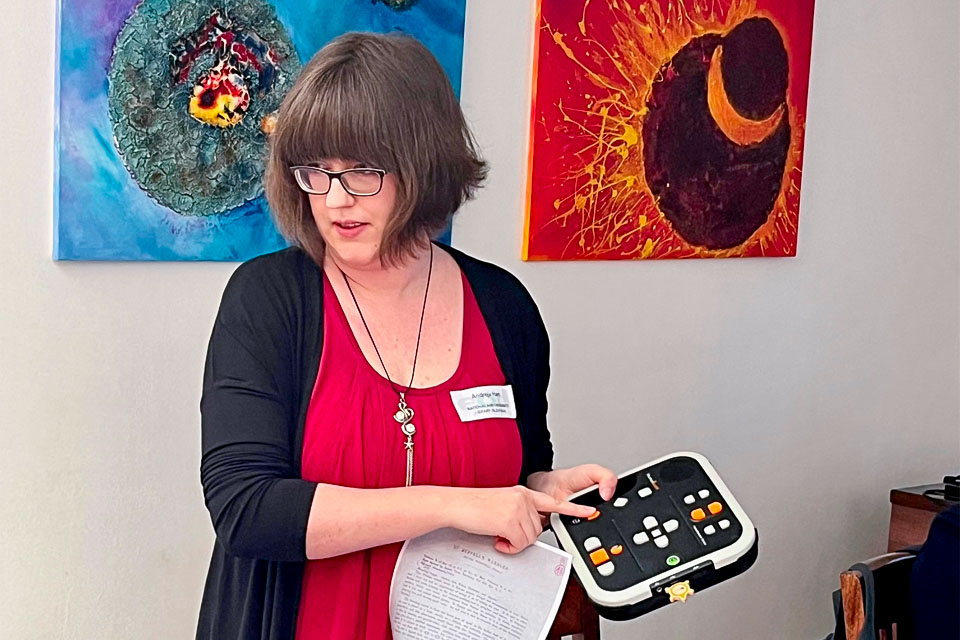Enhance Library Services with EODOPEN's Accessibility Training Materials

The working group, led by Slovenia’s National and University Library, developed key resources to improve digital access for mobile users and those with visual impairments. Based on 2019–2024 experiences, the team created nationwide training materials for librarians and a handbook on accessibility, copyright, and creating accessible formats, equipping librarians with skills to deliver inclusive digital services.
EODOPEN working group “Delivery formats of digitised material for special needs” (WG 4) led by the National and University Library of Slovenia (NUK) analysed alternative delivery formats for two different communities: users of mobile devices and blind and partially sighted users. During the EODOPEN project, they recognized that librarians face significant challenges in providing access to blind and partially sighted users.
Experiences gathered during the implementation of the EODOPEN project from 2019 to 2024, based on observations and previous research under Activities 11 and 12, formed the groundwork for the preparation of last two key deliverables under this working group. These are: “D13a Workshops and Training for Librarians and Interested Communities on a Nationwide Level”, and “D13b Educational Material Used in Workshops and Trainings”.
D13a includes recorded videos, slides, and training sessions prepared and implemented for project partners. D13b, the educational material used in workshops and trainings, is a handbook containing five educational modules. These modules are:
- 1. Accessibility and Reading Digital
- 2. Copyright
- 3. Digitisation and Delivery Formats
- 4. Creating Accessible Document Formats
- 5. Creating Accessible EPUB and HTML File Formats.
Each module explains the content, goals, training scenarios for delivering the material, and the necessary training resources. They are supported with practical examples, specially produced video recordings, and an evaluation test.
For both deliverables under Activity 13, the focus was on the production processes to provide access to digitised content specifically for blind and partially sighted communities. The working group observed that this area is crucial for many libraries. With the increasing number of users in these communities, a compilation of training materials would greatly benefit our partners and any other interested groups. Consequently, this would not only benefit print-disabled users access more accessible materials, but also support users of mobile devices, as the handbook is designed to address this user group as well.
The aim of this handbook is to equip librarians and other cultural workers with the skills, competence, and knowledge to provide services for print-disabled users, create alternative delivery formats, and understand copyright issues and the Marrakesh Treaty at a national level.
The D13 handbook and its supplements are available in the Outputs section of the project website, accessible to all partners for translation into their languages and for use or adaptation in their own training courses or workshops. Throughout the project, the working group leaders and partners also organised several training courses covering topics related to the production of alternative delivery formats.
We are grateful to the Daisy Consortium for allowing us to use and adapt some of their meticulously prepared educational materials. We believe that our educational material will empower librarians and other cultural workers.
October 1, 2024